
Central Freight Lines, Inc. Company Cyber Security Posture
centralfreight.comCentral Freight Lines has a rich history of providing transportation to emerging businesses and Fortune 500 industry leaders since 1925. Central's Corporate Office has been located in Waco, Texas for over 95 years. Central Freight Lines has sustainability, financial strength, and an infrastructure designed to intelligently support the logistical needs of North America's largest manufacturing, retail, and distribution enterprises. Central Freight Lines continues to look for growth opportunities without losing our focus of consistent, reliable LTL service to our core area which is comprised of 80 terminals from Miami to Los Angeles. Our network supports warehousing, inventory control and distribution capabilities for those corporations looking to outsource their supply chain needs. Central Freight Lines is the first LTL carrier to commit to supplementing their current diesel fleet with compressed natural gas tractors. Central Freight Lines San Antonio, Houston and Fort Worth local operations are running with clean operating CNG heavy duty tractors. Central Freight Lines is committed to reducing our carbon footprint and continuing to be an environmentally aware carrier. Central Freight Lines has made a significant investment in technology by instituting a state of the art digital dispatch management system. Our dispatchers are equipped with the most powerful and dynamic computer dispatch application available to the LTL environment.
CFLI Company Details
central-freight-lines
614 employees
7113.0
none
Transportation/Trucking/Railroad
centralfreight.com
Scan still pending
CEN_8189936
In-progress
Between 200 and 800
This score is AI-generated and less favored by cyber insurers, who prefer the TPRM score.
 CFLI Global Score
CFLI Global Score.png)

Central Freight Lines, Inc. Company Scoring based on AI Models
| Model Name | Date | Description | Current Score Difference | Score |
|---|---|---|---|---|
| AVERAGE-Industry | 03-12-2025 | This score represents the average cybersecurity rating of companies already scanned within the same industry. It provides a benchmark to compare an individual company's security posture against its industry peers. | N/A | Between 200 and 800 |
Central Freight Lines, Inc. Company Cyber Security News & History
| Entity | Type | Severity | Impact | Seen | Url ID | Details | View |
|---|---|---|---|---|---|---|---|
| Central Freight Lines, Inc. | Cyber Attack | 100 | 5 | 12/2020 | CEN01819222 | Link | |
Rankiteo Explanation : Attack threatening the organization's existenceDescription: The operating systems of Central Freight Lines were targeted in a cyberattack that disrupted the functioning of its call centers. The CFL was sued by Mothership Technologies for nearly $508,000 for unpaid invoices, citing breach of contract. However, the company's servers were soon fixed and all the operations got back to normal. | |||||||
Central Freight Lines, Inc. Company Subsidiaries

Central Freight Lines has a rich history of providing transportation to emerging businesses and Fortune 500 industry leaders since 1925. Central's Corporate Office has been located in Waco, Texas for over 95 years. Central Freight Lines has sustainability, financial strength, and an infrastructure designed to intelligently support the logistical needs of North America's largest manufacturing, retail, and distribution enterprises. Central Freight Lines continues to look for growth opportunities without losing our focus of consistent, reliable LTL service to our core area which is comprised of 80 terminals from Miami to Los Angeles. Our network supports warehousing, inventory control and distribution capabilities for those corporations looking to outsource their supply chain needs. Central Freight Lines is the first LTL carrier to commit to supplementing their current diesel fleet with compressed natural gas tractors. Central Freight Lines San Antonio, Houston and Fort Worth local operations are running with clean operating CNG heavy duty tractors. Central Freight Lines is committed to reducing our carbon footprint and continuing to be an environmentally aware carrier. Central Freight Lines has made a significant investment in technology by instituting a state of the art digital dispatch management system. Our dispatchers are equipped with the most powerful and dynamic computer dispatch application available to the LTL environment.
Access Data Using Our API

Get company history
.png)
CFLI Cyber Security News
Top 10 Tech Companies to Work for in Waco in 2024
Too Long; Didn't Read: The Waco, Texas tech scene boasts top employers like SpaceX, L3Harris, and homegrown innovators McLane and Curves, ...
News Alert: Central Freight Lines falls victim to cyberattack
Less-than-truckload carrier Central Freight Lines (CFL) confirmed it fell victim to a cyberattack, which knocked its operating systems and call ...
Central Freight Lines to shut down operations
Central Freight Lines was founded in 1925 when W.W. “Woody” Callan Sr. bought a Model T and drove from Waco to Dallas to pick up some goods for ...
Exclusive: Central Freight Lines to shut down after 96 years
Nearly, 2,100 employees will be laid off right before Christmas. Central Freight Lines is the largest trucking company to close since Celadon ...
Central Freight Lines’ cautionary tale
The venerable carrier's shutdown underscores the risk in failing to properly manage costs.
Central Freight aftermath: Paycheck concerns, benefit worries, unsafe work conditions
In the aftermath of Central Freight Lines' abrupt closure five weeks ago, many of the company's 2100 employees, including 1325 truck drivers ...
Central Freight Lines truckers: Final paychecks came too late for Christmas
After finding out that Central Freight Lines was shuttering operations, hourly employees, including 1325 truck drivers, learned that their ...
Former Central Freight Lines employee sues over LTL carrier’s shutdown
A former Central Freight Lines employee claims the Waco,Texas-based less-than-truckload carrier violated federal law by failing to give 60 ...
Truckers: Shuttered Central Freight Lines still owes them escrow, maintenance funds
Owner-operators and independent contractors say Central Freight Lines still hasn't refunded thousands of dollars in escrow or maintenance ...

CFLI Similar Companies

SBB CFF FFS
We shape the mobility of the future – simple, personal, connected. SBB’s comprehensive service contract allows us to offer a wide range of exciting careers in all areas of business. Thanks to this variety, many different career paths are possible, which we support through education and training o
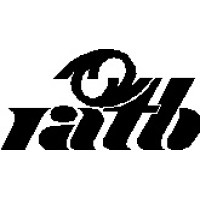
RATB
Collective Transport Company from Bucharest It operates a complex network of buses, trams and trolleybuses – in fact, all public transport except the Bucharest Metro, which is managed by Metrorex. While owned entirely by the City Council, RATB is an autonomous company. The RATB transport servi
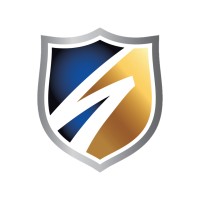
Swift Transportation
Swift Transportation is the largest full-truckload motor carrier in North America. Based in Phoenix, Arizona, the Swift terminal network includes over thirty full-service facilities in the United States and Mexico. Swift provides a full line of service solutions, including linehaul, flatbed, intermo
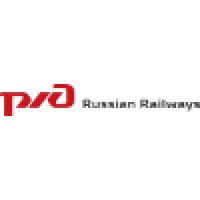
Russian Railways
Russian Railways is Russia’s leading railway company and one of the largest companies in the global transport sector. The Company is a natural monopoly and fully owned by the Russian Federation. Our primary goal is to meet the state’s rail transport and employment needs, and to provide services to p
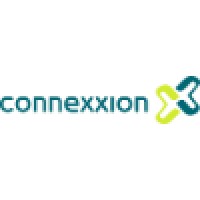
Connexxion
Connexxion wil de beste keuze zijn op het gebied van regionaal personenvervoer in Nederland. Met zorg brengen wij mensen op hun bestemming met toegankelijk, duurzaam en veilig vervoer! Wij willen mobiliteit voor iedereen toegankelijk en beschikbaar houden. Want wij geloven dat mobiliteit essentieel
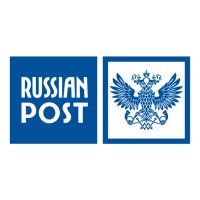
Russian Post
Russian Post is one of the largest internationally operating logistics groups and the national postal service provider of the Russian Federation. We offer a broad and multimodal portfolio of domestic and international e-commerce, parcel shipping and logistics solutions, by road, sea and air. With a

Frequently Asked Questions (FAQ) on Cybersecurity Incidents
CFLI CyberSecurity History Information
Total Incidents: According to Rankiteo, CFLI has faced 1 incidents in the past.
Incident Types: The types of cybersecurity incidents that have occurred include ['Cyber Attack'].
Total Financial Loss: The total financial loss from these incidents is estimated to be {total_financial_loss}.
Cybersecurity Posture: The company's overall cybersecurity posture is described as Central Freight Lines has a rich history of providing transportation to emerging businesses and Fortune 500 industry leaders since 1925. Central's Corporate Office has been located in Waco, Texas for over 95 years. Central Freight Lines has sustainability, financial strength, and an infrastructure designed to intelligently support the logistical needs of North America's largest manufacturing, retail, and distribution enterprises. Central Freight Lines continues to look for growth opportunities without losing our focus of consistent, reliable LTL service to our core area which is comprised of 80 terminals from Miami to Los Angeles. Our network supports warehousing, inventory control and distribution capabilities for those corporations looking to outsource their supply chain needs. Central Freight Lines is the first LTL carrier to commit to supplementing their current diesel fleet with compressed natural gas tractors. Central Freight Lines San Antonio, Houston and Fort Worth local operations are running with clean operating CNG heavy duty tractors. Central Freight Lines is committed to reducing our carbon footprint and continuing to be an environmentally aware carrier. Central Freight Lines has made a significant investment in technology by instituting a state of the art digital dispatch management system. Our dispatchers are equipped with the most powerful and dynamic computer dispatch application available to the LTL environment..
Detection and Response: The company detects and responds to cybersecurity incidents through {description_of_detection_and_response_process}.
Incident Details
Incident 1: Ransomware Attack
Title: {Incident_Title}
Description: {Brief_description_of_the_incident}
Date Detected: {Detection_Date}
Date Publicly Disclosed: {Disclosure_Date}
Date Resolved: {Resolution_Date}
Type: {Type_of_Attack}
Attack Vector: {Attack_Vector}
Vulnerability Exploited: {Vulnerability}
Threat Actor: {Threat_Actor}
Motivation: {Motivation}
Incident 2: Data Breach
Title: {Incident_Title}
Description: {Brief_description_of_the_incident}
Date Detected: {Detection_Date}
Date Publicly Disclosed: {Disclosure_Date}
Date Resolved: {Resolution_Date}
Type: {Type_of_Attack}
Attack Vector: {Attack_Vector}
Vulnerability Exploited: {Vulnerability}
Threat Actor: {Threat_Actor}
Motivation: {Motivation}
Common Attack Types: As of now, the company has not encountered any reported incidents involving common cyberattacks.
Identification of Attack Vectors: The company identifies the attack vectors used in incidents through {description_of_identification_process}.
Impact of the Incidents
Incident 1: Ransomware Attack
Financial Loss: {Financial_Loss}
Data Compromised: {Data_Compromised}
Systems Affected: {Systems_Affected}
Downtime: {Downtime}
Operational Impact: {Operational_Impact}
Conversion Rate Impact: {Conversion_Rate_Impact}
Revenue Loss: {Revenue_Loss}
Customer Complaints: {Customer_Complaints}
Brand Reputation Impact: {Brand_Reputation_Impact}
Legal Liabilities: {Legal_Liabilities}
Identity Theft Risk: {Identity_Theft_Risk}
Payment Information Risk: {Payment_Information_Risk}
Incident 2: Data Breach
Financial Loss: {Financial_Loss}
Data Compromised: {Data_Compromised}
Systems Affected: {Systems_Affected}
Downtime: {Downtime}
Operational Impact: {Operational_Impact}
Conversion Rate Impact: {Conversion_Rate_Impact}
Revenue Loss: {Revenue_Loss}
Customer Complaints: {Customer_Complaints}
Brand Reputation Impact: {Brand_Reputation_Impact}
Legal Liabilities: {Legal_Liabilities}
Identity Theft Risk: {Identity_Theft_Risk}
Payment Information Risk: {Payment_Information_Risk}
Average Financial Loss: The average financial loss per incident is {average_financial_loss}.
Commonly Compromised Data Types: The types of data most commonly compromised in incidents are {list_of_commonly_compromised_data_types}.
Incident 1: Ransomware Attack
Entity Name: {Entity_Name}
Entity Type: {Entity_Type}
Industry: {Industry}
Location: {Location}
Size: {Size}
Customers Affected: {Customers_Affected}
Incident 2: Data Breach
Entity Name: {Entity_Name}
Entity Type: {Entity_Type}
Industry: {Industry}
Location: {Location}
Size: {Size}
Customers Affected: {Customers_Affected}
Response to the Incidents
Incident 1: Ransomware Attack
Incident Response Plan Activated: {Yes/No}
Third Party Assistance: {Yes/No}
Law Enforcement Notified: {Yes/No}
Containment Measures: {Containment_Measures}
Remediation Measures: {Remediation_Measures}
Recovery Measures: {Recovery_Measures}
Communication Strategy: {Communication_Strategy}
Adaptive Behavioral WAF: {Adaptive_Behavioral_WAF}
On-Demand Scrubbing Services: {On_Demand_Scrubbing_Services}
Network Segmentation: {Network_Segmentation}
Enhanced Monitoring: {Enhanced_Monitoring}
Incident 2: Data Breach
Incident Response Plan Activated: {Yes/No}
Third Party Assistance: {Yes/No}
Law Enforcement Notified: {Yes/No}
Containment Measures: {Containment_Measures}
Remediation Measures: {Remediation_Measures}
Recovery Measures: {Recovery_Measures}
Communication Strategy: {Communication_Strategy}
Adaptive Behavioral WAF: {Adaptive_Behavioral_WAF}
On-Demand Scrubbing Services: {On_Demand_Scrubbing_Services}
Network Segmentation: {Network_Segmentation}
Enhanced Monitoring: {Enhanced_Monitoring}
Incident Response Plan: The company's incident response plan is described as {description_of_incident_response_plan}.
Third-Party Assistance: The company involves third-party assistance in incident response through {description_of_third_party_involvement}.
Data Breach Information
Incident 2: Data Breach
Type of Data Compromised: {Type_of_Data}
Number of Records Exposed: {Number_of_Records}
Sensitivity of Data: {Sensitivity_of_Data}
Data Exfiltration: {Yes/No}
Data Encryption: {Yes/No}
File Types Exposed: {File_Types}
Personally Identifiable Information: {Yes/No}
Prevention of Data Exfiltration: The company takes the following measures to prevent data exfiltration: {description_of_prevention_measures}.
Handling of PII Incidents: The company handles incidents involving personally identifiable information (PII) through {description_of_handling_process}.
Ransomware Information
Incident 1: Ransomware Attack
Ransom Demanded: {Ransom_Amount}
Ransom Paid: {Ransom_Paid}
Ransomware Strain: {Ransomware_Strain}
Data Encryption: {Yes/No}
Data Exfiltration: {Yes/No}
Ransom Payment Policy: The company's policy on paying ransoms in ransomware incidents is described as {description_of_ransom_payment_policy}.
Data Recovery from Ransomware: The company recovers data encrypted by ransomware through {description_of_data_recovery_process}.
Regulatory Compliance
Incident 1: Ransomware Attack
Regulations Violated: {Regulations_Violated}
Fines Imposed: {Fines_Imposed}
Legal Actions: {Legal_Actions}
Regulatory Notifications: {Regulatory_Notifications}
Incident 2: Data Breach
Regulations Violated: {Regulations_Violated}
Fines Imposed: {Fines_Imposed}
Legal Actions: {Legal_Actions}
Regulatory Notifications: {Regulatory_Notifications}
Regulatory Frameworks: The company complies with the following regulatory frameworks regarding cybersecurity: {list_of_regulatory_frameworks}.
Ensuring Regulatory Compliance: The company ensures compliance with regulatory requirements through {description_of_compliance_measures}.
Lessons Learned and Recommendations
Incident 1: Ransomware Attack
Lessons Learned: {Lessons_Learned}
Incident 2: Data Breach
Lessons Learned: {Lessons_Learned}
Incident 1: Ransomware Attack
Recommendations: {Recommendations}
Incident 2: Data Breach
Recommendations: {Recommendations}
Key Lessons Learned: The key lessons learned from past incidents are {list_of_key_lessons_learned}.
Implemented Recommendations: The company has implemented the following recommendations to improve cybersecurity: {list_of_implemented_recommendations}.
References
Additional Resources: Stakeholders can find additional resources on cybersecurity best practices at {list_of_additional_resources}.
Investigation Status
Incident 1: Ransomware Attack
Investigation Status: {Investigation_Status}
Incident 2: Data Breach
Investigation Status: {Investigation_Status}
Communication of Investigation Status: The company communicates the status of incident investigations to stakeholders through {description_of_communication_process}.
Stakeholder and Customer Advisories
Incident 1: Ransomware Attack
Stakeholder Advisories: {Stakeholder_Advisories}
Customer Advisories: {Customer_Advisories}
Incident 2: Data Breach
Stakeholder Advisories: {Stakeholder_Advisories}
Customer Advisories: {Customer_Advisories}
Advisories Provided: The company provides the following advisories to stakeholders and customers following an incident: {description_of_advisories_provided}.
Initial Access Broker
Incident 1: Ransomware Attack
Entry Point: {Entry_Point}
Reconnaissance Period: {Reconnaissance_Period}
Backdoors Established: {Backdoors_Established}
High Value Targets: {High_Value_Targets}
Data Sold on Dark Web: {Yes/No}
Incident 2: Data Breach
Entry Point: {Entry_Point}
Reconnaissance Period: {Reconnaissance_Period}
Backdoors Established: {Backdoors_Established}
High Value Targets: {High_Value_Targets}
Data Sold on Dark Web: {Yes/No}
Monitoring and Mitigation of Initial Access Brokers: The company monitors and mitigates the activities of initial access brokers through {description_of_monitoring_and_mitigation_measures}.
Post-Incident Analysis
Incident 1: Ransomware Attack
Root Causes: {Root_Causes}
Corrective Actions: {Corrective_Actions}
Incident 2: Data Breach
Root Causes: {Root_Causes}
Corrective Actions: {Corrective_Actions}
Post-Incident Analysis Process: The company's process for conducting post-incident analysis is described as {description_of_post_incident_analysis_process}.
Corrective Actions Taken: The company has taken the following corrective actions based on post-incident analysis: {list_of_corrective_actions_taken}.
Additional Questions
General Information
Ransom Payment History: The company has {paid/not_paid} ransoms in the past.
Last Ransom Demanded: The amount of the last ransom demanded was {last_ransom_amount}.
Last Attacking Group: The attacking group in the last incident was {last_attacking_group}.
Incident Details
Most Recent Incident Detected: The most recent incident detected was on {most_recent_incident_detected_date}.
Most Recent Incident Publicly Disclosed: The most recent incident publicly disclosed was on {most_recent_incident_publicly_disclosed_date}.
Most Recent Incident Resolved: The most recent incident resolved was on {most_recent_incident_resolved_date}.
Impact of the Incidents
Highest Financial Loss: The highest financial loss from an incident was {highest_financial_loss}.
Most Significant Data Compromised: The most significant data compromised in an incident was {most_significant_data_compromised}.
Most Significant System Affected: The most significant system affected in an incident was {most_significant_system_affected}.
Response to the Incidents
Third-Party Assistance in Most Recent Incident: The third-party assistance involved in the most recent incident was {third_party_assistance_in_most_recent_incident}.
Containment Measures in Most Recent Incident: The containment measures taken in the most recent incident were {containment_measures_in_most_recent_incident}.
Data Breach Information
Most Sensitive Data Compromised: The most sensitive data compromised in a breach was {most_sensitive_data_compromised}.
Number of Records Exposed: The number of records exposed in the most significant breach was {number_of_records_exposed}.
Ransomware Information
Highest Ransom Demanded: The highest ransom demanded in a ransomware incident was {highest_ransom_demanded}.
Highest Ransom Paid: The highest ransom paid in a ransomware incident was {highest_ransom_paid}.
Regulatory Compliance
Highest Fine Imposed: The highest fine imposed for a regulatory violation was {highest_fine_imposed}.
Most Significant Legal Action: The most significant legal action taken for a regulatory violation was {most_significant_legal_action}.
Lessons Learned and Recommendations
Most Significant Lesson Learned: The most significant lesson learned from past incidents was {most_significant_lesson_learned}.
Most Significant Recommendation Implemented: The most significant recommendation implemented to improve cybersecurity was {most_significant_recommendation_implemented}.
References
Most Recent Source: The most recent source of information about an incident is {most_recent_source}.
Most Recent URL for Additional Resources: The most recent URL for additional resources on cybersecurity best practices is {most_recent_url}.
Investigation Status
Current Status of Most Recent Investigation: The current status of the most recent investigation is {current_status_of_most_recent_investigation}.
Stakeholder and Customer Advisories
Most Recent Stakeholder Advisory: The most recent stakeholder advisory issued was {most_recent_stakeholder_advisory}.
Most Recent Customer Advisory: The most recent customer advisory issued was {most_recent_customer_advisory}.
Initial Access Broker
Most Recent Entry Point: The most recent entry point used by an initial access broker was {most_recent_entry_point}.
Most Recent Reconnaissance Period: The most recent reconnaissance period for an incident was {most_recent_reconnaissance_period}.
Post-Incident Analysis
Most Significant Root Cause: The most significant root cause identified in post-incident analysis was {most_significant_root_cause}.
Most Significant Corrective Action: The most significant corrective action taken based on post-incident analysis was {most_significant_corrective_action}.
What Do We Measure?
















Every week, Rankiteo analyzes billions of signals to give organizations a sharper, faster view of emerging risks. With deeper, more actionable intelligence at their fingertips, security teams can outpace threat actors, respond instantly to Zero-Day attacks, and dramatically shrink their risk exposure window.
These are some of the factors we use to calculate the overall score:
Identify exposed access points, detect misconfigured SSL certificates, and uncover vulnerabilities across the network infrastructure.
Gain visibility into the software components used within an organization to detect vulnerabilities, manage risk, and ensure supply chain security.
Monitor and manage all IT assets and their configurations to ensure accurate, real-time visibility across the company's technology environment.
Leverage real-time insights on active threats, malware campaigns, and emerging vulnerabilities to proactively defend against evolving cyberattacks.




